Physics
Sign up for our newsletter
We summarize the week's scientific breakthroughs every Thursday.
-
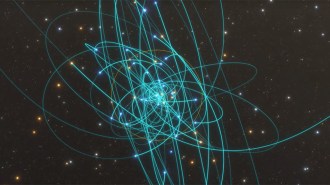 Physics
PhysicsThis fundamental constant of nature remains the same even near a black hole
A number that sets the strength of electromagnetic interactions isn’t altered by the extreme gravity around the Milky Way’s supermassive black hole.
-
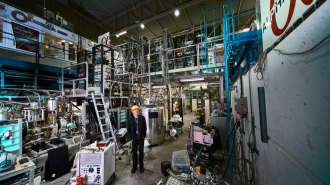 Particle Physics
Particle PhysicsAntimatter hydrogen has the same quantum quirk as normal hydrogen
Atoms of antihydrogen are affected by the Lamb shift, which results from transient particles appearing and disappearing.
-
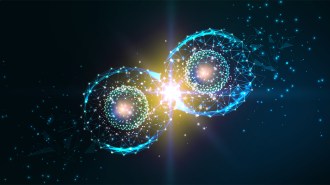 Math
MathHow a quantum technique highlights math’s mysterious link to physics
Verifying proofs to very hard math problems is possible with infinite quantum entanglement.
-
 Physics
PhysicsThe fastest way to heat certain materials may be to cool them first
A theoretical study reveals that, in certain situations, some materials might heat up more quickly after first being cooled.
-
 Quantum Physics
Quantum PhysicsScientists entangled quantum memories linked over long distances
The entanglement of quantum ‘hard drives’ is a crucial step toward creating a quantum internet.
-
 Physics
PhysicsHow to make the best fried rice, according to physics
Researchers show exactly how rocking and sliding a wok can launch fried rice into the air, letting it cook at a high temperature without burning.
-
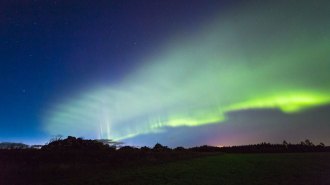 Earth
EarthHere are 5 of the weirdest auroras, including the newly spotted ‘dunes’
A newfound type of aurora dubbed the “dunes” joins the ranks of black auroras, STEVE and other obscure auroral phenomena.
-
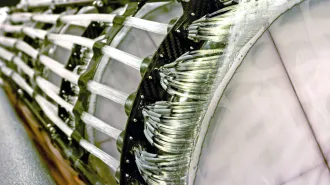 Physics
PhysicsA barrier to colliding particles called muons has been smashed
Future particle accelerators could slam muons together to reach higher energies than any before.
-
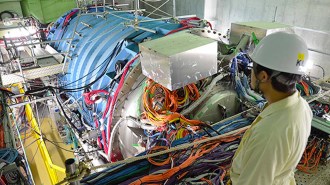 Particle Physics
Particle PhysicsMisbehaving kaons could hint at the existence of new particles
Certain extremely rare decays seem to be happening more often than expected, and scientists don’t know why.
-
 Materials Science
Materials ScienceThe containers the U.S. plans to use for nuclear waste storage may corrode
The different components of a nuclear waste storage unit start to corrode each other when wet, new lab experiments show.
-
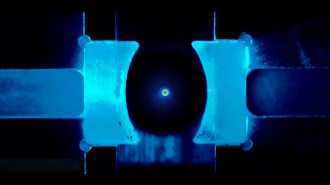 Physics
PhysicsScientists cooled a nanoparticle to the quantum limit
Physicists decreased a nanoparticle’s motion to the lowest level allowed by quantum mechanics.
-
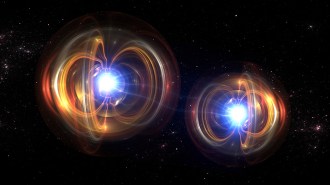 Physics
PhysicsA quantum strategy could verify the solutions to unsolvable problems — in theory
A quantum technique for verifying solutions to difficult problems could apply to an “unbelievably huge” class of puzzles.